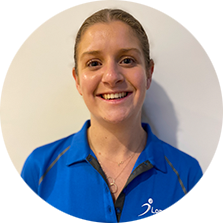Why NDIS participants should see an Exercise Physiologist
Today, Longevity Exercise Physiology Drummoyne, Edgecliff, Marrickville, Bella Vista, Randwick, Pymble, Neutral Bay and Balmain are registered NDIS providers. We have a passion for helping participants improve their quality of life through structured exercise sessions. Sessions can be conducted in the studio/gym, at home, outdoors or via telehealth.
Starting an exercise program can be daunting, especially when having a disability. However, through the guidance and assistance of an Accredited Exercise Physiologist, we can work together to make positive lifestyle changes, and improve an individual’s quality of life.

Here are three reasons why you should commence Exercise Physiology sessions – which can lead you to improving your health and ultimately reaching your goals.
- Exercise helps improve overall health and will help prevent further health conditions
Individuals living with a disability may have other health issues either directly or indirectly related to their condition. For example, diabetes, high blood pressure or asthma. Regular exercise has been shown to manage and improve the symptoms associated with many chronic health conditions. Exercise is known to improve strength, cardiovascular fitness, body composition and flexibility. It can also help improve blood pressure, decrease cholesterol levels, and decrease triglycerides. In many neurological conditions it has also been shown to have a neuro-protective effect and slow disease progression. Physical activity can also help increase brain size, improve memory, reduce the risk of dementia, as well as strengthen and improve lung function.
- Exercise can improve your mental health and social skills
Physical activity has been shown to improve mental health conditions such as mild to moderate depression as well as anxiety. Even a short amount of physical activity can help give the body a boost of endorphins automatically improving your mood. Endorphins are our feel-good chemicals. Endorphins can protect us from future mental health episodes. Exercise has also been shown to improve self-esteem, confidence, and social anxiety. For certain individuals Exercise Physiology sessions are a chance to improve their social skills and speak with their practitioner in a safe and comfortable environment.
Being able to get outdoors or completing some sort of physical activity is a great way to socialise, catch up with friends, or meet new people. Increasing social interactions and building new friendships, will also help increase self-confidence, improve communication skills and increased involvement in the local community.
- An Exercise Physiologist can create an individualised plan to suit your goals
You do not need to have experience with exercise to be able to book in with an Exercise Physiologist. We work with all experience levels, from those who haven’t done much physical activity before, to level athletes. An Exercise Physiologist can help you reach your health goals with an individualised program that suits your needs. Exercise Physiologists specialise in clinical exercise prescription and help individuals exercise with chronic conditions such as neurological conditions and physical disabilities to help improve function, health and wellbeing.
Longevity Exercise Physiologist’s are helping many NDIS participants with their health goals. To access Exercise Physiology within your NDIS Plan you must have funding within the Improved Daily Living Skills or Improved Health and Wellbeing Categories.
Are you an NDIS participant wanting to start an exercise program? Call Longevity Personal Training and Exercise Physiology Edgecliff, Pymble, Marrickville, Randwick, Drummoyne, Balmain, Bella Vista, Neutral Bay on 1300 964 002 to book in for a free 15-minute consult.
Written by Annabel Bergman

